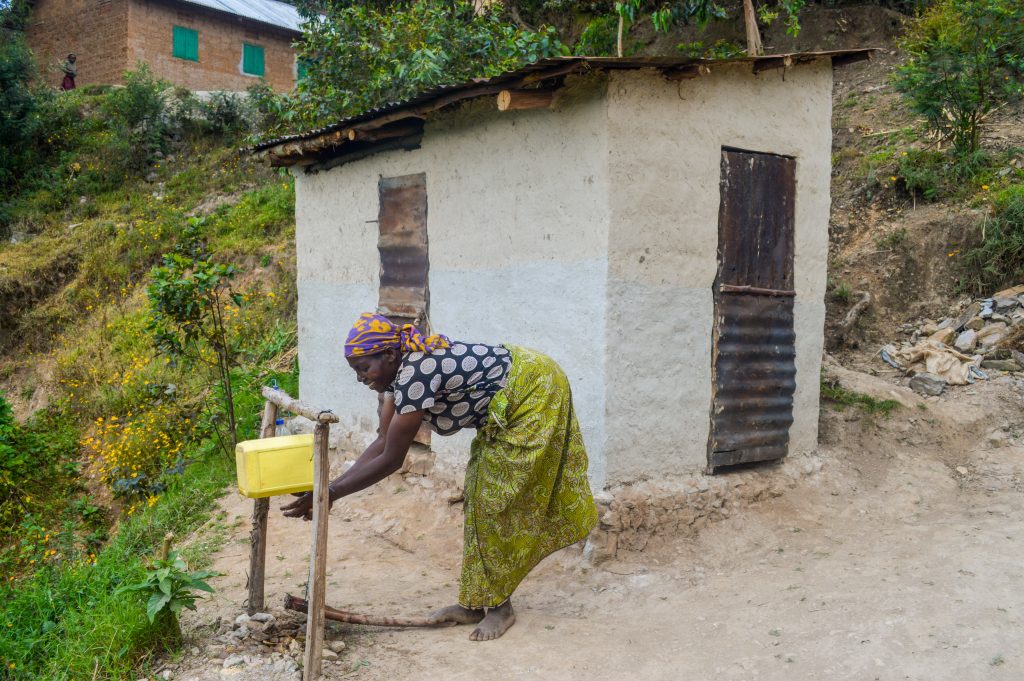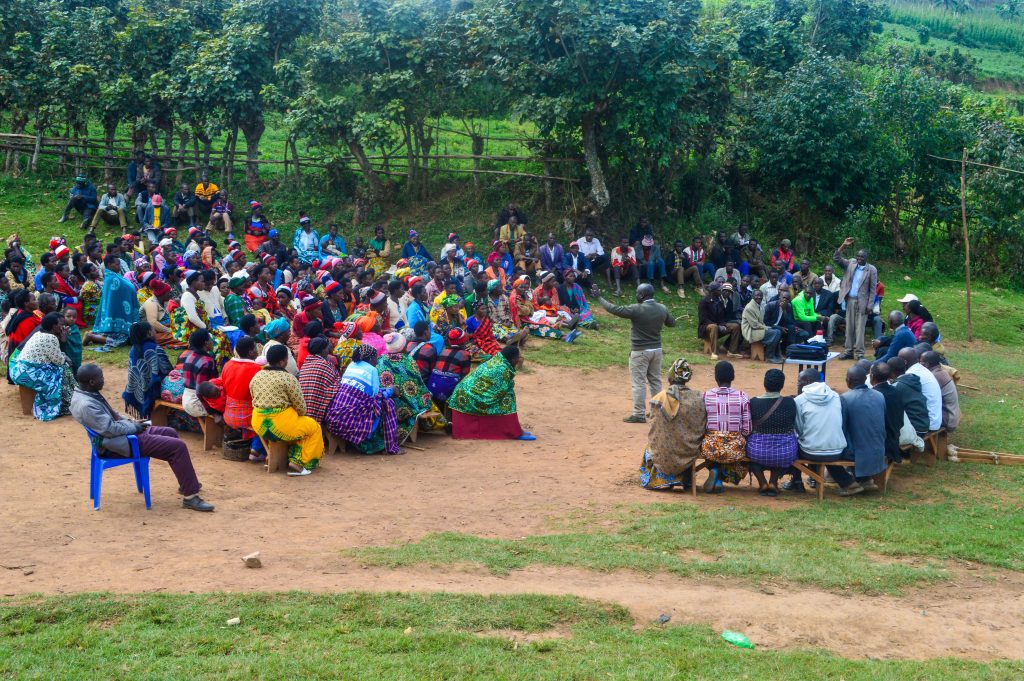Mr. Okuni Julius
Julius is the chairperson of Machari East, one of the villages of the AWS operation in Petta subcounty, Tororo district, Uganda. In 2022, he donated the land on which the tank reservoir is hosted and became a member of the water user committee. He had observed the water wasted during the overflow, but had no idea how to make valuable use of it until the president’s speech triggered his mind to think out of the box. During the presidential State of the Nation address in October 2023, Julius was attentive, as the president advised that for economic development, people ought to diversify into different farming sectors, such as fish farming, beyond rice.
The 45-year-old father of five shared the idea with his wife, who seemed supportive, and soon he went to the fishery office at the district and made inquiries about what was required to farm fish. First, he needed a reliable water source, capital, and knowledge. He then visited a place called “Kadama”, with an established fishpond for a learning visit, and eventually went home with the Fishery officers for a site visit. He was advised to dig a ditch 5 feet deep, plant trees for shade, and get water weeds to help in cooling the water temperature for Fish habitation. He adhered to these requirements and then started with 500 fish early this year, and as the fish grew bigger, he was advised to add more fish, so that he could have growing fish as he sells the older ones; thus, he added 300 more fish.
His current capital stands at UGX 700,000, and he plans to grow it by opening a second pond so that he can have a constant fish supply to his future clients, since he harvested in late July 2024. He is very grateful to Africa Water Solutions for its support towards the economic development of the community and glad that he offered his land without much expectation, not knowing that a bigger reward opportunity awaited him.

PHOTO: Julius holding a cat fish from his pond
He pledges to continuously support the sustainability of the organization’s programs and plans to officially invite the AWS team for his next harvest, as he shares his testimony, since he believes that his life’s trajectory has changed.







